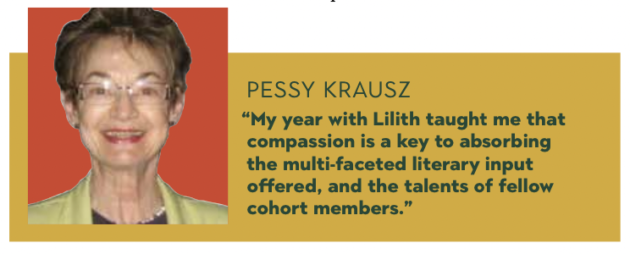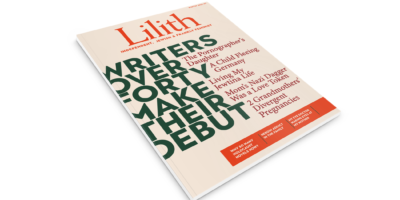
The Isle of Man
 HER LIPS MOVED like the mouth of a small fish, like a goldfish in a bowl, as she told me story after story.
HER LIPS MOVED like the mouth of a small fish, like a goldfish in a bowl, as she told me story after story.
“Mummy, tell me another,” I would beg. I could hear her uttering sounds, but I just watched her lips move. Each corner stuck together like petals opening when you blow gently. Come to think of it, like that bunny rabbit flower—when you press the two sides, its mouth opens and closes. You can’t do that to mummy’s lips, but you can do that to a bunny rabbit flower. Of course, later I learned they were called Antirrhinums. Most call them snap dragons or dog flowers, because, like I said, they open their mouths when they’re squeezed. But I call them bunny rabbits. Much nicer.
Mummy’s lips were a silk pale rose petal color on the outside, slightly paler and silvery towards her teeth. Her teeth were lovely, shiny white, small but even. What with her chubby cheeks floating about and a dimple in each, watching her read was fascinating. I did it for hours. No matter the story, all I wanted was something to do, apart from wanting to climb out of the Isle of Man.
When my legs got tired of story time, I’d wander around a bit. All round the Isle of Man, for some reason, near where we sat, there was a high barbed wire fence. Did I know it was an Internment Camp? Or what an Internment Camp was? I was skinny but not athletic enough to climb up. I’d claw at the gray metal lattice work until my fingers hurt. But even standing tiptoe, I couldn’t manage to get my feet off the ground.
There were a few others on the wooden bench Mummy sat on every day. A brownish woolly coat seemed wrapped around, and her arms held it tight. A beret hat snug over her head must have kept out some of the cold. Even though I once tried sitting on that bench when someone moved, my bottom hurt after only a few minutes, so I’d stand in front of mummy. In any case, that’s where I could see her telling me the stories.
I heard someone on the bench. Told Mummy what a clever little girl I was—sehr klug—all in German, of course. So little and not crying, with no one to play with. She asked Mummy what we were doing here.
Mummy explained we were enemy aliens because our identification papers were lost as we raced for our lives from Antwerp in Belgium to Dunkirk.
“Ach! What were you doing in Antwerp? I thought like me you were born in Germany?”
“True. But on Kristallnacht Nazis found where we were living in Leipzig, and came to round us up.”
“Ach Mrs. M! That was November 1938. We all know the Nazis shattered windows of synagogues, murdered Jews. How did you three escape?”
“Aron bundled our little daughter, barely a year old, in his arms as we rushed upstairs to our non-Jewish neighbors. Begged them to hide us. Convinced them our little one would not cry. Stuffed us into a bedroom wardrobe, they did, as the Nazis banged on their door. We nearly suffocated there, but those wonderful neighbors told those murderous Nazis we’d all left long ago! I’ll cut it short… I’ll tell you the next day we escaped over the border to Antwerp.”
“But looks like you were there for two years? I heard Nazis were scooping up the Jews and carting them off down the main Antwerp street to their Auschwitz fate. How did you get here?”
I hear Mummy’s deep sigh. She stood up, tried to stretch and take a few steps. She held my hand.
“Mummy,” I said. “Where are we going?”
She just turned to her neighbor and said before she could tell her the story she must first tell her little girl—me—about it.
We walked slowly round the edge of the barbed wire netting until there was another bench. No one on it. Goodie!
“Mummy! Are you going to tell me another story?”
This time Mummy sat me on her lap—not much room with that woolly coat, but I sort of snuggled in, and looked up, when she asked:
“Do you remember one morning we pulled you out of bed early? And dressed just as you were, Daddy put you on his shoulders and we were running? You did not know but we ran from Antwerp to Dunkirk’s shore. The Nazis were bombing all the way through Belgium, and British soldiers were desperately retreating. Belgium was losing the war. I felt, where there’s water there’s hope. Maybe we’d go with the British soldiers who were being evacuated, fleeing for their lives, back to England. People sort of laughed at my lunatic idea, but then they didn’t know my determination.”
I didn’t understand everything, but I told Mummy I remembered Daddy carrying me on his shoulders with bombing booms behind and in front making me jump no end, all the time. Soon, more events from that day started gradually coming back to me.
My mother had a tough time, with those short legs and smart shoes trying to keep up with my dad. Of course, she had no time to dress properly for our race for life. Just as we were, mummy with a handbag holding our precious documents, me and my dad in sort of big, all in one overalls, called siren suits, running madly with thousands of others.
No siren suit for Mummy, but a smart two-piece navy blue costume, white blouse, woolly brown coat. Just kept pretending she could keep up, puffing and telling daddy to slow down because “the child is sleeping” Me? Sleeping! Well, I was resting my head on that gray felt hat of my dad’s, but sleep? Whoever could with all that racket! We made it to the shores of Dunkirk. Collapsing onto one of the sand dunes for a few moments. And we got there in the nick of time. Eight days later, no more little boats evacuated the troops. But we faced thousands of retreating British soldiers being herded by commanding officers onto the hundreds of little fishermen’s boats. So what were our chances of getting aboard one to savior England?
Desperately crawling out of the beach dunes, hoisting me up onto his shoulders once again, my dad, proud that Mummy could speak English, prompted her.
“Ask that British officer to take us, quick Gina.” Her normally gentle voice was not carried away by the blasting winds as it rose to a screech.
“Will you take us on one of your boats?”
“Certainly not! We are evacuating the British troops!”
As he turned away, my mother frantically reached forward and pulled the gun in his belt right out. Lucky I was too tired to budge on my dad’s shoulders, because mummy did a frightening thing.
She held that gun to my head—yes, mine! She swore she’d shoot me and my dad and commit suicide if he didn’t take us. Well, that British officer took the gun and us, and lifted me in his iron grip up into the air.
Terrified, he dropped me over the side of a boat and down, down into a narrow wooden passageway. Mummy and Daddy behind deep in the gangway. Daddy grabbed my hand in his, ice cold. But, with relief, I let go. And what did I do next? Ran back and forth, happy as a fish thrown back into water from dry land, singing my little German song, “Pessy, dreidich! Mach hop Sa, Sa, Sa!” “Pessy turnabout! Make a hop, skip and a jump!” all the while being patted on the head by soldiers piled high and grinning down at this spectacle.
“Make her our Mascot,” they shouted.
Mummy felt me daydreaming, clinging to her, and held me tight.
“What is it?” she asked?
“I remember singing a little song on a boat.”
“Yes, nearly all the way in the choppy bombed down waters until we got pulled onto England’s Dover Beach. That’s when the police found I had lost our marriage and birth certificates. They flew out of my bag while we were escaping. Daddy speaks no English and was put into jail as a suspected spy. And here we are, on the Isle of Man until someone vouches for him that he isn’t. Let’s hope soon.”
Well, I didn’t mind, as long as Mummy would keep on telling me stories, and I could watch her petal lips, instead of being clutched tight against that brown woolly coat.
Pessy Krausz, Ph.D. fled with her parents from Germany, grew up in England, made aliyah to Israel, and worked in Jerusalem’s Ministry of Social Welfare as consultant and psychotherapist.



